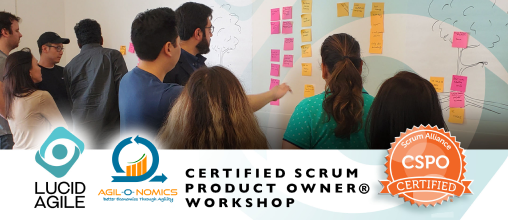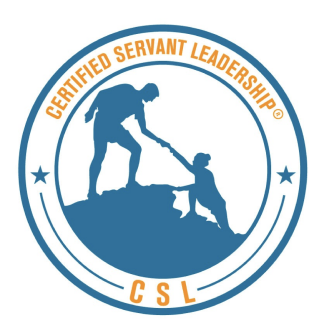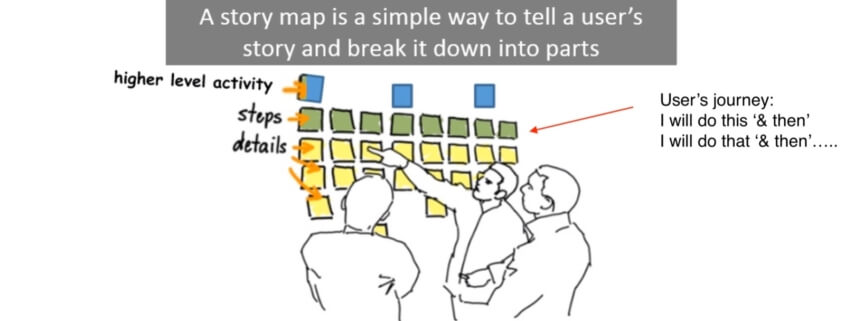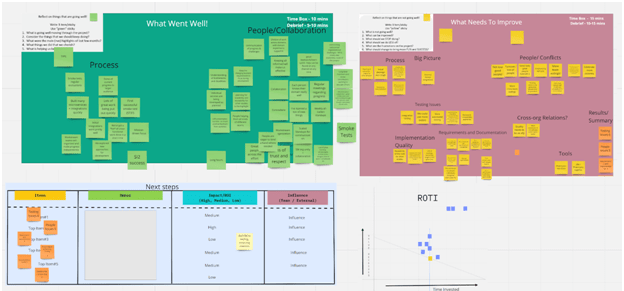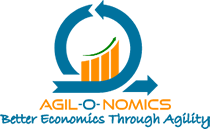
The Product Owner (PO) role in Scrum is like a puzzle waiting to be solved. It’s a role that’s both vital and enigmatic. Is it different from a Product Manager’s job, or are they two sides of the same coin? Can it be played solo, or is a team approach the key? Do you need to be a product management pro, or is adaptability more valuable? Is it a full-time commitment, and how closely should a dedicated PO work with their development team?
In this blog, we’ll demystify the Product Owner’s journey, answering these questions and more, helping you determine if this role aligns with your aspirations, providing clarity and guidance to help you determine if this could be your ideal career path.

Skill #1: Visionary Prowess
Product Owners are the visionaries of Agile. They see beyond the now, charting a course to a brighter future for their teams and companies. As a Product Owner, you’ll inspire and lead, turning ideas into goals and shared dreams into reality.
As a famous visionary leader, Walt Disney once said, “All our dreams can come true if we have the courage to pursue them.” Similarly, Product Owners transform visions into accomplishments, steering their teams towards success.
Learn more about the qualities of a good Product Owner.

Skill #2: Profound Business and Domain Knowledge
Undoubtedly, having a deep understanding of the business, technology, and domain is a skill that should never be underestimated. It’s a skill that can’t be improvised or substituted.
For instance, in my experience working with financial and medical clients, it became evident how crucial domain expertise is for Product Owners. In the financial sector, a Product Owner’s grasp of loans, mortgages, and interest rates is indispensable. It enables effective negotiations with stakeholders and the astute prioritization of requirements. On the other hand, in the medical domain, Product Owners need to be well-versed in premium billing and the intricacies of medical insurance liabilities.
Now, imagine if these Product Owners swapped roles – it would be far from seamless. Each domain has its unique language, challenges, and intricacies. So, my advice for anyone considering a role as a Product Owner is to start in an industry you’re passionate about, where you have hands-on experience and profound knowledge. Your domain expertise will be your guiding star as you embark on your journey as a Product Owner.
Find out why domain knowledge is essential for Product Owners in this article.
Skill #3: Building Strong Stakeholder Relationships and Effective Communication
In my coaching experience, I encountered a Product Owner who faced significant challenges due to disagreements with stakeholders from various domains. The pressure of constantly navigating conflicting priorities created a tumultuous environment. This highlighted the critical importance of establishing robust relationships with stakeholders and honing negotiation and consensus-building skills.
While it’s true that, by definition, a Product Owner holds the reins of prioritization, practical success hinges on alignment rather than dictation. Operating in isolation and acting as a dictator rarely garners favor. In reality, fostering collaboration and consensus among stakeholders is a key element of effective product ownership.
Furthermore, this skill extends to the Product Owner’s role as a motivator. They serve as a driving force, inspiring development teams to unite and work cohesively towards the realization of the product’s vision. In essence, a Product Owner isn’t just a decision-maker; they’re a unifying force, fostering collaboration, and ensuring that all parties move harmoniously toward shared goals.
Discover more in How do Great Product Owners help their Teams – Part 1.
Skill #4: Quick Decision-Making and calling on Choices
A good Product Owner makes quick decisions, especially when things get intense. This skill needs three things: empowerment, decisiveness, and the willingness to make hard choices.
This courage to decide quickly and make tough calls needs self confidence. It is well supported with your domain knowledge, strong communication skills, and your strong relationships with stakeholders. Even with all that, being decisive is something you develop. Making rapid, tough choices can have big consequences.
During my tenure as a Product Coach in the gaming industry, I vividly recall a pivotal moment. We were on the brink of a game launch when a critical bug emerged, threatening to mar the player experience. The team was in a whirlwind, and all eyes turned to the Product Owner for guidance. In the blink of an eye, the Product Owner had to make a tough call: delay the launch by a few days to ensure perfection. It was a challenging decision, but it ultimately safeguarded the game’s reputation. Such swift and resolute decision-making, bolstered by domain expertise and effective communication, is the hallmark of the role.
Learn how to steer clear of pitfalls in decision-making in Steering Clear: 10 Pitfalls Every Product Owner Must Dodge
But what about technical know-how and Understanding the Team?
One more skill often asked about for aspiring Product Owners is technical expertise. Is it necessary for a Product Owner to have prior experience as a developer-programmer, or qa-tester, or a tech lead, etc.?
In my perspective, not necessarily. What truly matters is the Product Owner’s ability to comprehend the team’s work and communicate effectively in their language.
For instance, if you’re steering a software team as a Product Owner, you don’t have to be a coder, but it certainly helps to understand coding and how the coders discuss and work together. Working with team and being available to them as needed, can help you get better at this skill.

Exploring Diverse Paths to Becoming a Product Owner
In the realm of Product Owners, many times internal folks are asked to step up to play this role. Why? Well, as explained before, having domain and industry knowledge is key in being a successful Product Owner. Let’s take a look at the various roles that [can] transition into Product Owner role
Product Manager to Product Owner
One common route is transitioning from a Product Manager to a Product Owner. Product Managers often deal with customers, pricing, competition and all things on the outside. While the Product Owners work closely with their teams on one side and with the Product Managers as stakeholders. It needs to be noted that Product Owner is a role while Product Management is a career. In Scrum the Product Owner role is expected to have Product Management skills. So, moving to a Product owner role will only be beneficial in making Scrum strong. The role does increase the responsibilities and expectations from the Product Manager turned Product Owner. However, played wisely and with proper support from the rest of the Scrum Team, the role can be effective without burning out.
Project Manager to Product Owner
Another well-traveled path is going from a Project Manager to a Product Owner. As organizations embrace agility, Project Managers often find themselves taking on roles like Scrum Masters, coaches, or Product Owners. However, Scrum and Agile are about shifting from a project mindset to product mindset. Here, the expectation would be to be flexible and open towards embracing new ways of managing the Product Backlog and behaviors to support strong Srum.
Team Manager to Product Owner
Team Managers typically have a strong grasp of their team’s daily activities and often make decisions about the team’s tasks. It’s a natural progression, understanding both the bigger picture and the nitty-gritty details. Again, like the project managers, team managers will benefit by embracing new behaviors that support agility. Many times we see managers portray old behaviors under this new hat. Being aware of this tendency will help embrace agility
Technical Lead to Product Owner
Transitioning from a Technical Lead to a Product Owner is a logical evolution. Technical Leads are well-versed in the technology stack, making them effective Product Owners who can bridge the gap between tech and business. But, here again, gaining product Management skills will help you be an effective Product Owner
In all of the above transitions it will help if you and your team get some training and more importantly Agile coaching from an experienced coach. A good Agile coaching helping your team transition to an effective Scrum team and working alongside you will help make your transition faster, smoother, organic and effective.
Check out our professional solutions for you as you embark on your journey at www.fosterthechange.com

Considering a Career as a Product Owner? Ask Yourself These 5 Vital Questions
Thinking about stepping into the world of Product Ownership? Beyond mastering the necessary skills described above and crafting a roadmap from your current role to the Product Owner position, it’s essential to reflect on these five pivotal questions provided below:
Question 1: Do You Thrive on Conversations?
Product Owners, whether extroverts or introverts, must be effective communicators. You’ll be in constant dialogue with users, customers, developers, and an array of stakeholders. Being a Product Owner isn’t about hiding behind headphones or firing off emails and surveys; it’s about actively engaging with the people involved.
Question 2: Are You Open to Listening?
As a Product Owner, the spotlight often falls on you when decisions are at stake. But here’s the twist: Are you ready to lend an ear to developers who toss in new or different ideas? It’s not just about asserting your authority; it’s about being open to different perspectives. Users, customers, and stakeholders will have their say, and you’ll need to be all ears to keep everyone content.
Question 3: Can You Navigate Through Conflict?
In the world of Product Ownership, desires rarely align perfectly. Expect a healthy dose of conflict. Different stakeholders will champion different causes, and you’ll be the one making some weighty calls. Not everyone will cheer for your decisions every time, and it’s part of the gig. Can you weather the storm?
Question 4: Can You Handle Uncertainty and Change?
In the realm of Product Ownership, change is a constant companion. You’ll often find yourself navigating uncharted waters, facing evolving priorities, and adapting to shifting market dynamics. Are you comfortable with the idea of unpredictability and the need to change course when necessary? It’s a crucial question for any prospective Product Owner.
Question 5: Finally, does Ownership Thrill You?
Being a Product Owner often places you at the helm of a product’s fate. You wield considerable influence over its success. Does that prospect get your adrenaline pumping, or does it send shivers down your spine? It’s a question only you can answer.
So, ponder these questions and chart your course wisely. What’s your take on a career as a Product Owner? If you’re already a Product Owner, what other skills or personality traits do you think are essential? Are there more questions you’d toss into the mix to decide if Product Ownership suits you? Share your thoughts in the comments.
To delve deeper into the qualities and responsibilities of a good Product Owner, explore our guide at qualities, responsibilities, and characteristics of a good Product Owner













